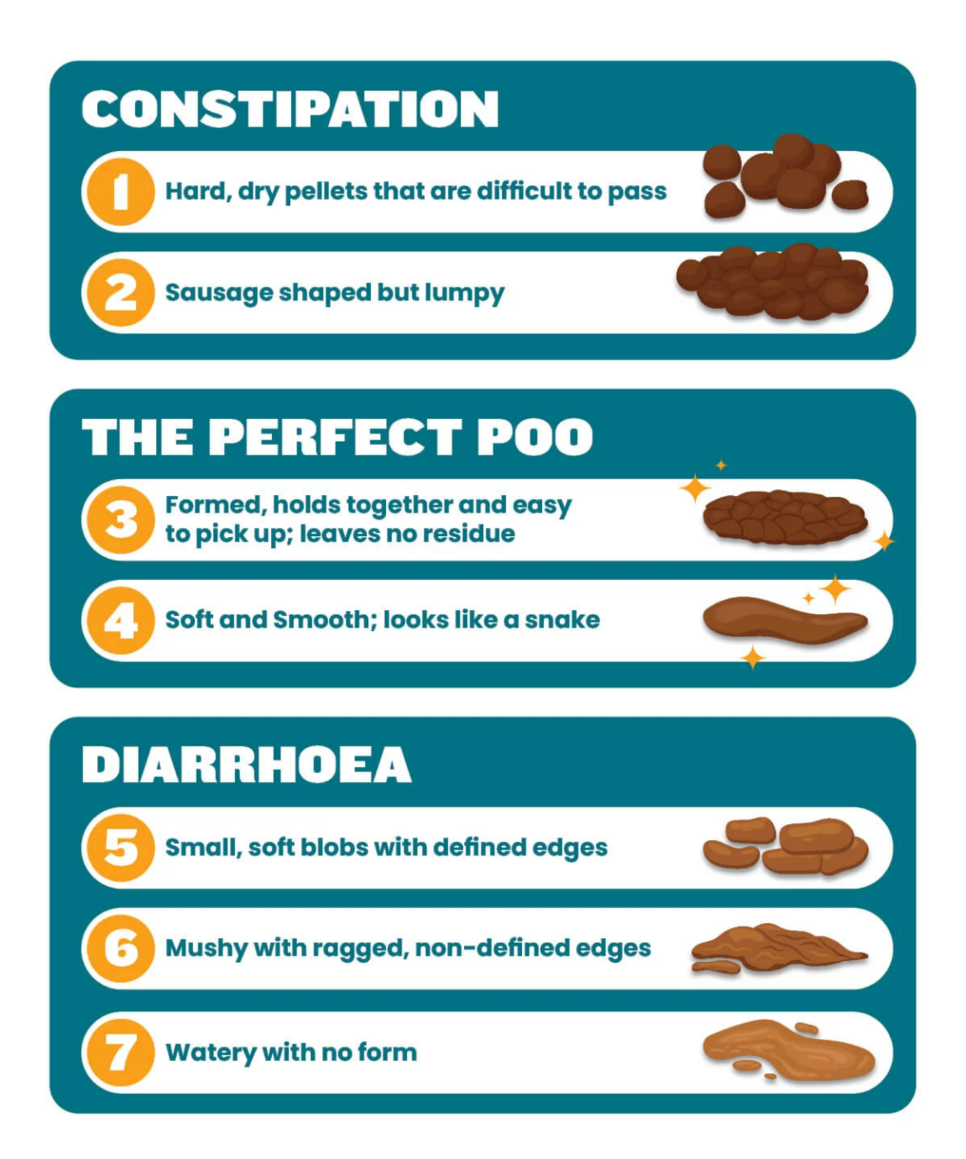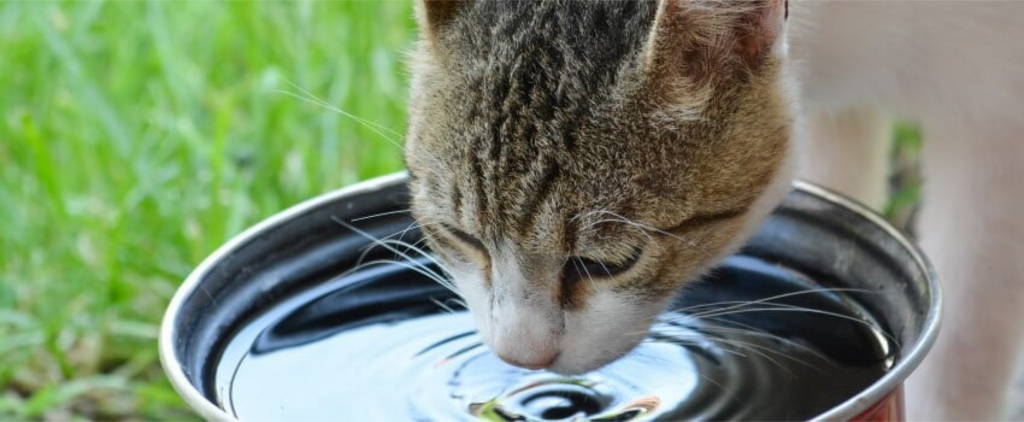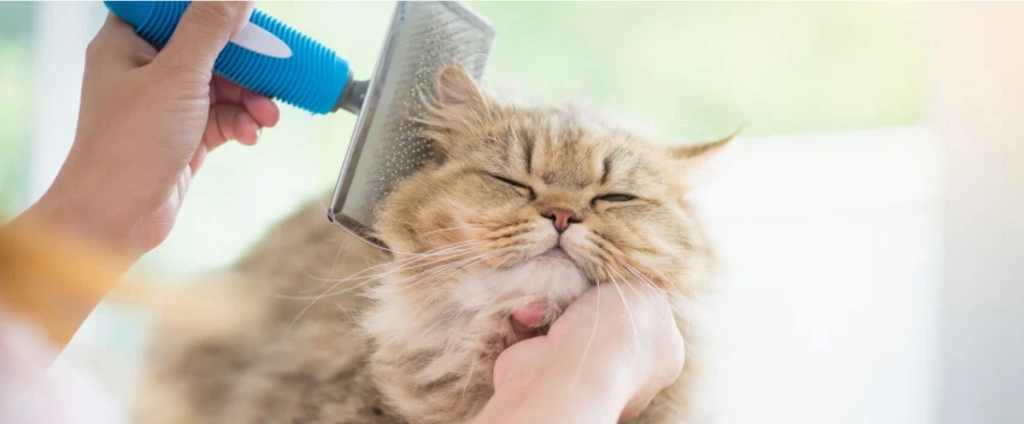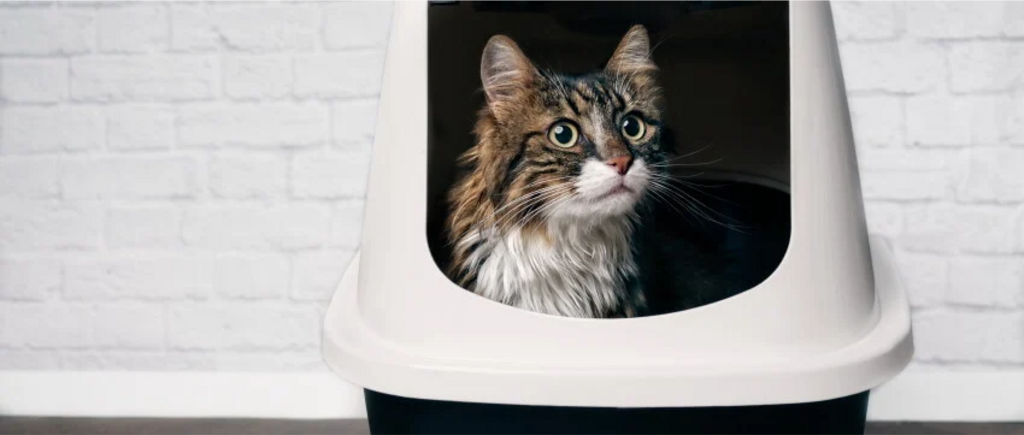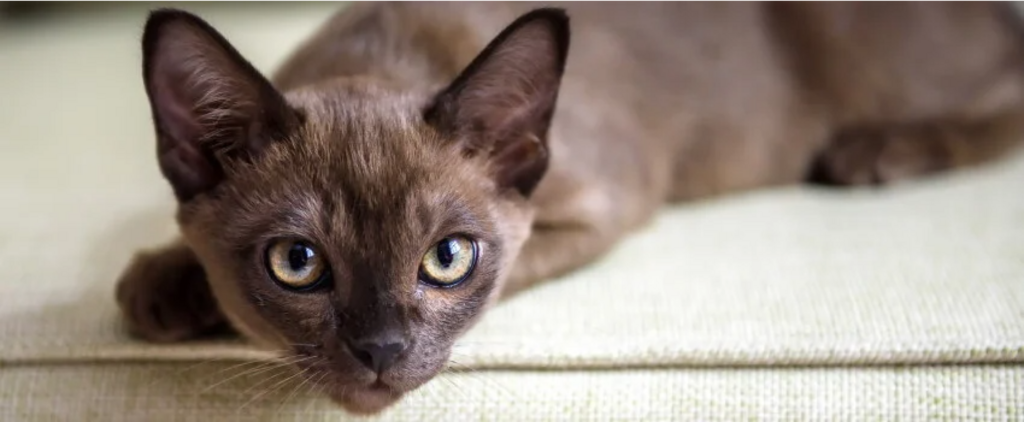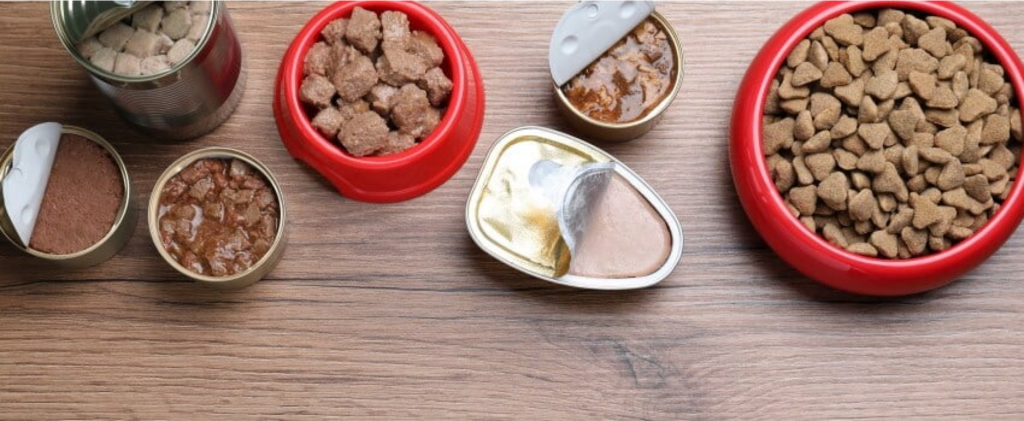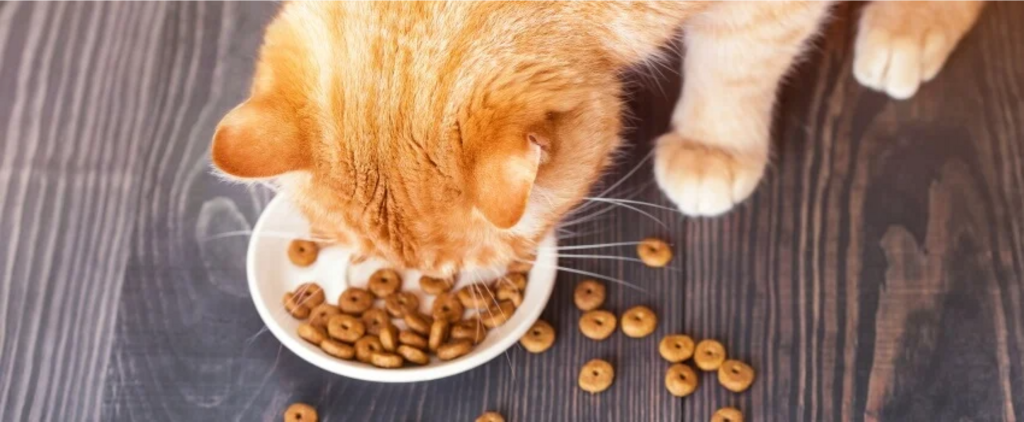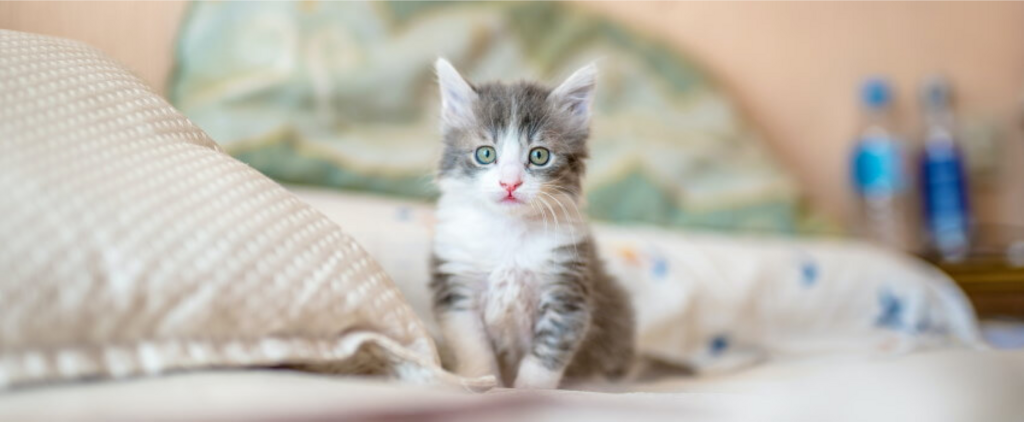Last Updated: 06/06/2025
The Scoop on Your Cat's Poop
Check out our Vet-guide for the important things to look out for regarding your cat's poop.
Author: Dr Belinda Stancombe BVSc (Hons)
Reading Time: 22 minutes - medium read
Type 1: Constipation
If your cat is producing hard, pellet-like faeces then they are likely suffering from constipation.
Constipation is the infrequent or difficult passage of faeces. It is common for cats suffering from constipation to strain and pass small hard and dry pellet-like faeces, which can be painful. As the colon's main function is to absorb water from the digestive tract, faeces that is retained for an extended period of time, becomes hard and dry, making it more difficult to pass.
Cats can be prone to developing megacolon, secondary to chronic constipation. This is where the colon dilates, enlarges and becomes immobile. Chronic cases of constipation can lead some cats to becoming obstipated, a severe form of constipation which results in them being unable to pass faeces or gas at all. This can be very painful and requires immediate veterinary treatment to remove the backed up faeces.
Common Causes of Constipation:
- Dehydration
- Hairballs
- Orthopaedic issues such as arthritis- if your kitty finds it painful to assume the 'pooping position', they may be holding on for longer than they should, leading to dehydrated stools.
- Megacolon- this is a condition where the colon dilates, enlarges, and becomes immobile. It may be secondary to chronic dry faecal bulk, or it may have no known cause
- Stress or Behavioural Issues- such as a change in environment, a new animal in the household, or any problems with the litter box
- Foreign body or obstruction
- Genetic issues- for example, Manx cats can suffer from congenital spinal cord deformities.
- Medication
2. Manage Hairballs
3. Introduce a Stool Softener
A paraffin-based stool softener may be required for chronic cases of constipation. Paraffin is an oil which coats the faeces and helps provide lubrication to prevent hard, dry faeces from 'getting stuck'.
Prolonged use of paraffin can prevent the nutrients in your cat's food from being absorbed, so occasional use only is recommended.
4. Change Litter Tray or Cleaning Routine
Type 3 & 4: The Perfect Poo
Type 5, 6, 7: Diarrhoea
Most cats will suffer from diarrhoea or loose stool at some point in their life. Diarrhoea is the passing of soft or watery faeces, with increased frequency and water content.
For cats that are suffering from a small bout of diarrhoea but are otherwise well, a diet of boiled chicken, or a gastrointestinal diet recommended by your veterinarian, can help settle things down. Cats will often respond well to probiotic supplements, which help to re-establish good gut bacteria and aid in digestion.
For cats suffering from diarrhoea showing any of the below signs, they should be seen by a veterinarian immediately. Your veterinarian may need to run further tests to get to the bottom of the cause of their diarrhoea.
When Your Cat Should See The Vet:
- Diarrhoea for longer than 2 days
- They are a kitten
- Lethargy
- Inappetance
- Vomiting
- Blood or Mucous in faeces
- Cat that experience diarrhoea may be prone to dehydration, due to high water loss. This is especially true for kittens as a result of their immature immune systems and limited reserves. It is for this reason that all kittens should see the vet immediately if they have diarrhoea.


